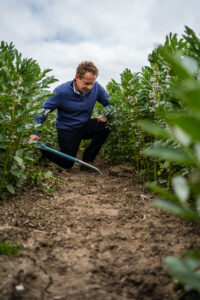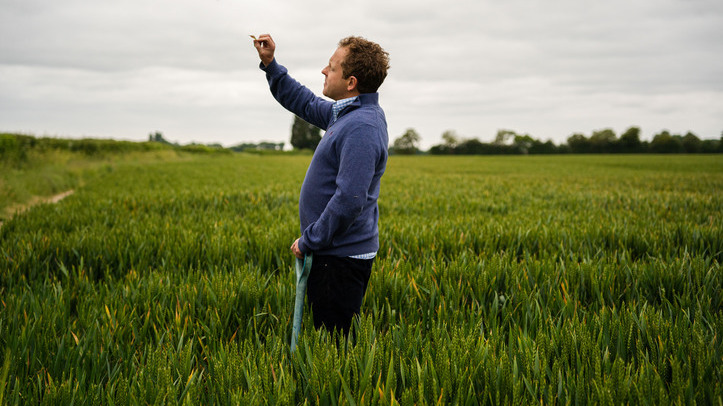Royal Canin has created a new partnership with agronomy firm Soil Capital to encourage farmers in the pet food brand’s supply chain to adopt regenerative agriculture practices.
The new alliance aims to engage, train and financially support farmers to adopt regenerative practices to lower carbon emissions and boost soil health and biodiversity on up to 30,000 acres of farmland, ultimately delivering the equivalent of 150,000 tonnes in greenhouse gas reductions.
Soil Capital trains and helps reward farmers to implement climate-smart practices that lower carbon emissions through sequestration and reduction, while at the same time aiming to improve soil health, water and climate resilience as well as biodiversity. The B-Corp agronomy firm, which operates in the UK, France and Belgium, has developed an online platform for greenhouse gas assessment and support for regenerative transitions.
The partnership with Royal Canin will initially focus on supporting the transition to regen-ag practices with 250 farmers in Belgium and France, before expanding into other European countries. Similar partnerships are being developed in North America.
Cécile Coutens, global president at Royal Canin, said: “Transformation of today’s agricultural systems and global supply chains is critical to tackling the climate emergency. Farming in a different, regenerative way is one of the tools we must use to both reduce emissions and improve livelihoods for the farmers in our supply chains.
“To achieve our Net Zero commitments and protect the health of our planet it is critical that we collaborate closely with farmers and support them to transition to climate smart and regenerative agriculture.”
Chuck de Liedekerke, chief executive at Soil Capital, added: “In order to drive the necessary transition to regenerative agricultural practices, farmers need to be both motivated and incentivized to change the way they farm. Royal Canin’s latest initiative represents an important step in ensuring that farmers are supported to make this shift, in a way that succeeds in improving soil health and storing carbon.”




